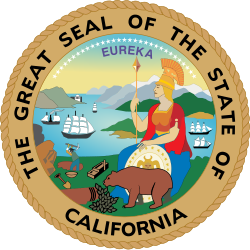Subjects of debate
Proponents of the bill described its provisions as simple and narrowly focused, with Sen. Scott Weiner describing it as a "light-touch, basic safety bill". [7] This was disputed by critics of the bill, who described the bill's language as vague and criticized it as consolidating power in the largest AI companies at the expense of smaller ones. [7] Proponents, in turn, argued that the bill only applies to models trained using more than 1026 FLOPS and with over $100 million, or fine-tuned with more than $10 million, and that the threshold could be increased if needed. [46]
The penalty of perjury was also a subject of debate, and was eventually removed through an amendment. The scope of the "kill switch" requirement was also reduced, following concerns from open-source developers. The use of the term "reasonable assurance" in the bill was also controversial, and it was eventually amended to "reasonable care". Critics then argued that "reasonable care" imposed an excessive burden by requiring confidence that models could not be used to cause catastrophic harm; proponents claimed that the standard did not require certainty and that it already applied to AI developers under existing law. [46]
Support and opposition
Individual supporters of the bill included Turing Award recipients Yoshua Bengio [47] and Geoffrey Hinton, [48] Elon Musk, [49] Bill de Blasio, [50] Kevin Esvelt, [51] Dan Hendrycks, [52] Vitalik Buterin, [53] OpenAI whistleblowers Daniel Kokotajlo [43] and William Saunders, [54] Lawrence Lessig, [55] Sneha Revanur, [56] Stuart Russell, [55] Jan Leike, [57] actors Mark Ruffalo, Sean Astin, and Rosie Perez, [58] Scott Aaronson, [59] and Max Tegmark. [60] Over 120 Hollywood celebrities, including Mark Hamill, Jane Fonda, and J. J. Abrams, also signed a statement in support of the bill. [61] Max Tegmark likened the bill's focus on holding companies responsible for the harms caused by their models to the FDA requiring clinical trials before a company can release a drug to the market. [60]
Organizations sponsoring the bill included the Center for AI Safety, Economic Security California and Encode. [62] The labor union SAG-AFTRA and two women's groups, the National Organization for Women and Fund Her, sent support letters to Governor Newsom. [63] The Los Angeles Times editorial board also wrote in support of the bill. [64]
Individual opponents of the bill included Andrew Ng, Fei-Fei Li, [65] Russell Wald, [66] Ion Stoica, Jeremy Howard, Turing Award recipient Yann LeCun, and U.S. Congressmembers Nancy Pelosi, Zoe Lofgren, Anna Eshoo, Ro Khanna, Scott Peters, Tony Cárdenas, Ami Bera, Nanette Barragán and Lou Correa. [7] [67] [68] Andrew Ng called for more targeted regulatory approaches, such as the targeting of deepfake pornography, the watermarking of generated materials, and investment in red teaming and other security measures. [69]
The University of California and Caltech researchers also wrote open letters in opposition. [67]
Industry
The bill was opposed by industry trade associations including the California Chamber of Commerce, the Chamber of Progress, [a] the Computer & Communications Industry Association [b] and TechNet. [c] [3] Companies including Meta [73] and OpenAI [74] were opposed to or raised concerns about the bill, while Google, [73] Microsoft and Anthropic [60] proposed substantial amendments. [4] However, Anthropic announced its support for an amended version of the bill while mentioning that some aspects of the bill which they said seemed concerning or ambiguous to them. [75] Several startup founder and venture capital organizations opposed to the bill, for example, Y Combinator, [76] [77] Andreessen Horowitz, [78] [79] [80] Context Fund [81] [82] and Alliance for the Future. [83]
After the bill was amended, Anthropic CEO Dario Amodei wrote that "the new SB 1047 is substantially improved, to the point where we believe its benefits likely outweigh its costs. However, we are not certain of this, and there are still some aspects of the bill which seem concerning or ambiguous to us." [84] xAI CEO Elon Musk supported the bill. [85] On September 9, 2024, at least 113 current and former employees of AI companies OpenAI, Google DeepMind, Anthropic, Meta, and xAI signed a letter to Governor Newsom in support of SB 1047. [57] [59]
Open source developers
Critics expressed concerns about liability on open source software imposed by the bill if they use or improve existing freely available models. Yann LeCun, the Chief AI Officer of Meta, has suggested the bill would kill open source AI models. [69] There were concerns in the open-source community that due to the threat of legal liability companies like Meta may choose not to make models (for example, Llama) freely available. [86] [87] The AI Alliance wrote in opposition to the bill, among other open-source organizations. [67] In contrast, Creative Commons co-founder Lawrence Lessig wrote that SB 1047 would make open source AI models safer and more popular with developers, since both harm and liability for that harm would be less likely. [45]
